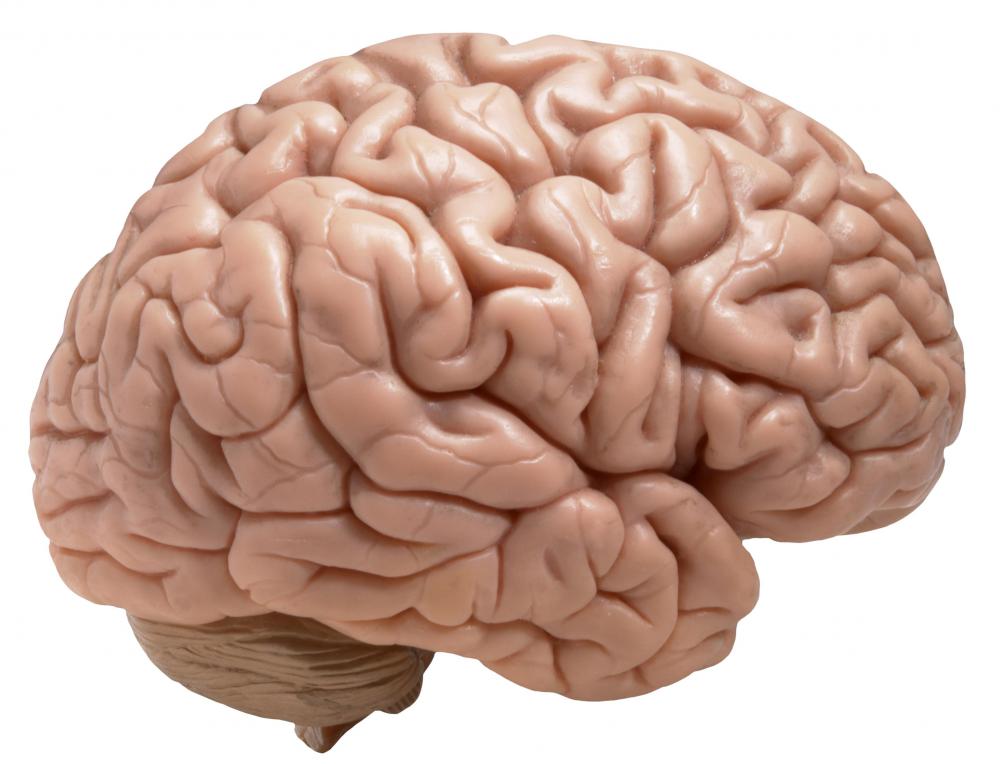At WiseGEEK, we're committed to delivering accurate, trustworthy information. Our expert-authored content is rigorously fact-checked and sourced from credible authorities. Discover how we uphold the highest standards in providing you with reliable knowledge.
What is the Connection Between Nicotine and Depression?
Evidence provided by scientific studies suggests that there are various connections between nicotine and depression. One group of researchers has established a possible link between adolescent nicotine use and adult depression, a phenomenon which may arise from the exposure of the not yet fully developed adolescent brain to the chemicals contained in nicotine. Paradoxically, another study suggests that, due to its ability to stimulate the brain’s neurotransmitters, nicotine may be useful in treating adult depression. Further, there is a recognized link between withdrawal from nicotine and depression, which is likely rooted in both the physical and psychological effects of nicotine cessation.
A 2009 study conducted on laboratory rats suggests that teenage nicotine use may lead to depression in adulthood. During this study, adolescent rats were injected with a nicotine solution for a period of two weeks. They were later observed to display depressed reactions when placed in stressful situations. Interestingly, adult rats injected with the nicotine solution showed no signs of depression when placed in the same stressful situations as the animals injected during adolescence. While this phenomenon is not yet fully understood, researchers have suggested that, because the adolescent brain has not yet reached maturity, it may be more susceptible to damage by the chemicals contained in nicotine.

On the other hand, a small 2006 study suggests that nicotine may actually be useful in the treatment of depression in adults. During this study, half of a group of non-smoking individuals suffering from depression wore a nicotine patch, while the other half wore a placebo patch. After eight days, the individuals who had been wearing the nicotine patch reported that their depression symptoms had lessened in severity. It is thought that this effect may arise from nicotine’s tendency to stimulate the release of “feel-good” neurotransmitters like serotonin in the brain. Researchers involved with this study do not advocate the use of harmful nicotine-containing tobacco products, but are optimistic about the possibility of developing a pharmaceutical drug which isolates the depression-alleviating properties of nicotine.

Finally, there is a long-recognized link between withdrawal from nicotine and depression. Depression which arises from tobacco cessation is likely caused both by decreased neurotransmitter activity and by the psychological effects of quitting a habit which many tobacco users associate with pleasure, comfort, and calmness. This particular link between nicotine and depression may last only until an individual adjusts to life without tobacco. In rare cases, however, a former nicotine user may need sustained professional support to manage depression.
AS FEATURED ON:
AS FEATURED ON:














Discussion Comments
I've only known a couple of smokers who weren't depressed for about six weeks or so after they quit. I have to think it's coming off the nicotine as much as anything.
I think I'll just avoid that whole scene by not getting hooked on the coffin nails to start with. There are just no positives to being addicted to them. It's bad for you on every level. I don't fuss at smokers, but I do wish they would give up the habit. It's getting too expensive, if nothing else! Wow, but those things are pricey.
I can believe there's a connection. When my mom stopped smoking, you would have thought the whole world died! She was in a rotten, lousy mood, and stayed that way until she got on Prozac. That did help a little.
I am guessing the nicotine kept her mood up at least a little. Lord knows what she would have been like if she hadn't been a smoker when she went through menopause. I expect we would have retired to a cave somewhere!
It would be nice if researchers could find a more effective anti-depressant medication that didn’t have so many side effects, and if nicotine does that, then it may be a real step forward.
Post your comments